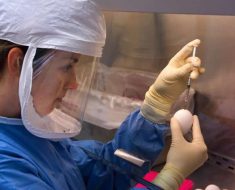Alex Trebek released a statement today that his doctors says he’s in “near remission” of his advanced pancreatic cancer that was diagnosed in March, according to the Associated Press. The report continues with Trebek saying some of the tumors have shrunk by more than 50 percent; a result his doctors are calling “mind-boggling.”
This, from a disease where typically three percent of patients are alive five years after being diagnosed, according to the American Cancer Society. Is it just TV hype?
“I think that the positive response that has been achieved here does happen in patients,” says Allyson Ocean, MD, medical oncologist at New York-Presbyterian and Weill Cornell Medicine. “I’d have to say it’s not so common to see tumor shrinkage like that, but we are seeing this more and more with the chemotherapy regimens that have been developed over the past decade.”
It’s hard to know without being on his medical team, she says. “There are certain tumors that respond better to certain chemotherapies than others…some tend to respond well to a standard chemotherapy that’s given for pancreatic cancer,” she says. Response to treatment depends on many things, including how healthy a person is going into treatment, and what’s going on inside the tumor—something docs can now tease out something about, and tailor treatment accordingly, thanks to DNA tests that can be done on that tumor.
Where pancreatic cancer treatment is now
“This highlights the point that every patient with pancreatic cancer should undergo genetic testing of their blood and the tumor,” Dr. Ocean says. “There’s a sentiment of resignation among some doctors who don’t treat pancreatic cancer that often. It blows my mind that a decent percentage of people aren’t even offered treatment for metastatic disease. But we know that chemotherapy extends survival and makes people feel better.”
One of the many challenges with pancreatic cancer is that it doesn’t cause symptoms early on, and there aren’t routine screening tests yet, so it’s usually detected and diagnosed at a very late, harder-to-treat stage. “We still have a huge way to go,” says Dr. Ocean. “But through clinical trials, the development of screening tests, and new drugs on the horizon, we are making strides.”
Source: Read Full Article





